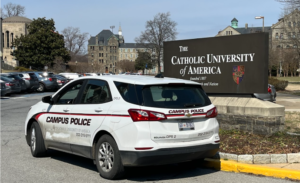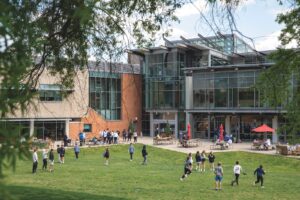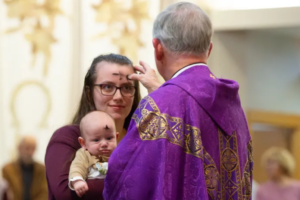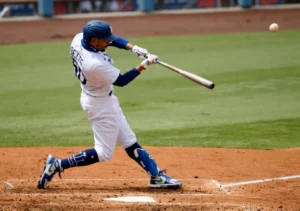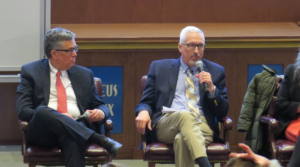“Delivering Little Boy”: Doctors in the Manhattan Project

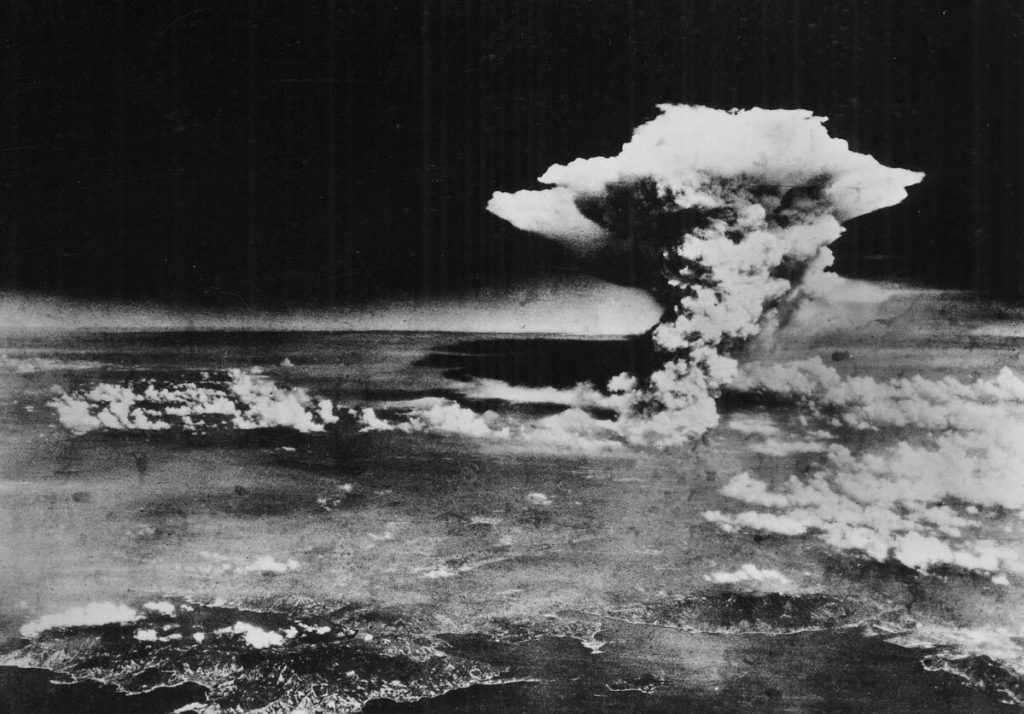
By Abby Anderko
Dr. James Nolan, a professor of sociology from Williams College in Massachusetts spoke to Catholic University students, faculty and members of the Brookland community on Monday, February 18th. His lecture was on the Manhattan Project and his grandfather’s participation as a medical doctor.
Even though his grandfather never spoke of his participation in the Manhattan Project, Nolan did not know the full extent of his involvement. About 6and a half years ago, however, Nolan inherited materials after his father’s passing about his grandfather and his full participation in the carrying of the first atomic bomb known as “Little Boy” that was dropped on Hiroshima. The box also contained his research after the fact as a part of the first groups of scientists to study the epicenter after the explosion and learn more about the radiation that remained in the area.
Nolan began his presentation by commenting on how the title of his book Delivering Little Boy: Doctoring History at the Dawn of the Nuclear Age. This book was also the title of his presentation had multiple meanings for him. The first was because of his grandfather, who before he delivered “Little Boy” the atomic bomb, delivered little boys and girls of many prominent people of the time as he was
During his lecture, Nolan showed never seen before pictures that had been taken by his grandfather during his time in Japan as a member of the Manhattan Project chapter of the Joint Commission (JC). He discussed their roles after the bombs hit as well as some of their research, particularly about the effects of radiation and radiation poisoning in the following days, months, and years after the atomic bombs hit.
“It’s important to learn the lessons of history and there is a lot that we stand to lose by not knowing how things unfolded historically,” Brandon Vaidyanathan, the chair of the Sociology Department at Catholic University said. “This case in particular is crucial because it integrates so many different events. It’s not just history, it is about the role of science and the role of the medical community and how that intersects with politics.”
Vaidyanathan reflected that people tend to think of science as a pure path towards progress, peace and prosperity. He stated that science and political forces play a major role in the development of technology that is created today, which tends to stray its meaning from it pure origins. Because of this, we don’t realize about how much science has been co-opted by political forces and continues to be in various ways.
Aside from being a lecture about the dawn of the nuclear age, Nolan also used his discussion to warn people about technology, the hold that it has on people, and the long term consequences of this technology.
“People don’t think about the long term consequences, and in this case [the atomic bombs] we are still studying today,” Nolan said. “One of the most important lessons is thinking about the unintended consequences and the long term consequences of technological innovation.”
He reminded the audience that in order to use technology freely and not let it take us into its grasp, we must recognize the force that it holds over people, rather than letting it control people’s lives without question.

